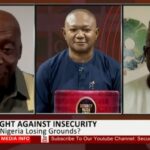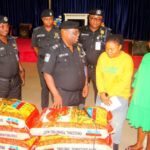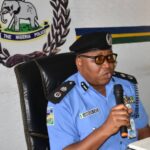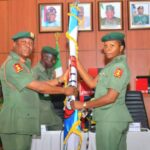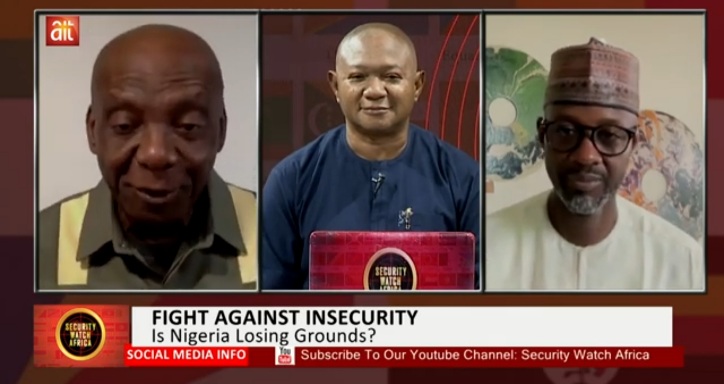By Augustine Ehikioya
Worried by the latest developments in the North East geopolitical zone of Nigeria, a former Director, Department of State Services (DSS), Dennis Amachree, has maintained that Nigeria is loosing grounds in its fight against insurgency.
Noting that three Local Government Areas (LGAs) are presently in the control of insurgents in Borno State, accordingtothe State governor, Professor Babagana Umara Zulum. He recalled that the last scenario was under the administration of former President Goodluck Jonathan, which did the needful to recover them all from the insurgents.
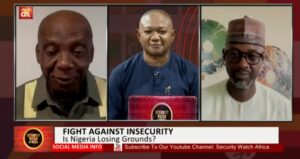
He spoke through ZOOM as a guest during the Security Watch Africa (SWA) Programme on the Africa Independent Television (AIT) anchored by its President / CEO, Mr. Patrick Agbambu.
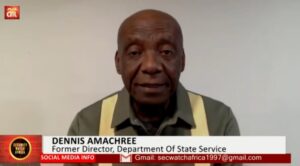
Mr. Amchree was speaking on the topic “Fight Against Insecurity: Is Nigeria Losing Grounds?” Alongside a Security Risk Management Expert, Dr. Kabiru Adamu.
He said “Looking at the physical context, we can see that we had secured all the local governments in Borno, Adamawa and Yobe during the period of President Goodluck Jonathan when seven local governments were taken over by Boko Haram.
“At that time, he deployed PMCs to come and gave them a time limit to do that. They got them out, and of course, we conducted the elections.
“Now, after that, we have been fighting Boko Haram because the fight has been expanded with the infusion of ISWAP and all kinds of foreign elements that have come to play.
“All these guys have been there. Before they wanted to form a Caliphate, but now they are just hitting, running, and doing all kind of things.
“When you look at it very closely, the last meeting that the Borno governor held with traditional rulers was not encouraging, where you had the Shehu of Borno. In fact, he mentioned it that three local governments are out of their hands and in Boko Haram’s control.
“So in that context, you can say that we are losing grounds again because anytime we lose a territorial integrity of Nigeria to an insurgent group, then we are losing ground. But there could be other context, too, in looking at the generality of what is happening in Nigeria.” he stated.
He agreed that the endowment of great resources in the North West and North Central have contributed greatly to the insecurity in the zones.
According to him, there is no area in the world with such a quantum of mineral resources deposits that do not experience such a fight.
Some African countries with mineral deposits, he said, have also had issues due to manipulation by some foreign countries.
Besides the high agricultural produce in Plateau State, he said that it has great mineral resources deposits, which had also been compounding the security situation in the State.
The former DSS Director also noted that there are high deposits of gold in Zamfara State, which is also fueling banditry in the area.
While stressing that similar fight for resources are going on in the South South, he urged the government to go beyond looking at the fighters and find out what is under the ground in the areas of crisis.
Campaigns for the 2027 elections, he said, have started and are already fueling insecurity in Nigeria.
According to him, Nigerians don’t practice democracy but ‘electocracy’
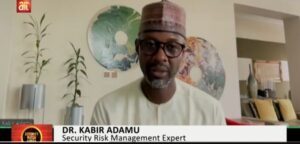
On his part, a Security Risk Management Expert, Dr Kabir Adamu, disclosed that from research carried out, the North West and North Central zones have now become the Most-Security challenged zones in the country.
He said, “Unfortunately, the research is telling us that the North West, and to an extent the North Central of Nigeria, the most-security challenged parts of Nigeria. No doubt, the North East features prominently from time to time.
“But in terms of sustained fatality, it is the North West and North Central. And here, it is the activities of the so-called ‘bandits’, ” he said.
He said that the bandits have increased their onslaught in the zones by challenging the supremacy of the use of force by the states, attacking vulnerable communities, rustling cattles, attacking security personnel at random almost on a daily basis.
According to him, their activities are high in places like Zamfara, Katsina, parts of Sokoto, and Kebbi States.
He also disclosed that the new group Lakurawa in the past few weeks has been increasing in size in terms of its areas of operations from about 7 local governments to 12.
Dr Adamu also disclosed that many splinter groups associated with Al-Qaeda and ISWAP have also been discovered in the North Central State of Niger, in its border area with Benin Republic.
“In summary, the North West and North Central have remained consistently over the last one year as the epicentre of security challenge in Nigeria.” he added
He also pointed out that militancy and oil theft in the South South are increasingly high, while secessionist agitation is still present in the South East at a reduced level.
Based on the data at his disposal, he said South West is presently the most secured part of Nigeria.
A major problem over the years, he said, was the inability to see the multifaceted nature of conflicts in Nigeria.
Some of the factors, he said, included social economic circumstances, inflation, unemployment, present harsh economic circumstances, post 2023 political situation in the country, environmental factors, arms proliferation, and drug issues.
In each zone, he pointed out that the factors interplay differently from zone to zone.
On the factors that have made the South West calm and more secured, he said, the zone has been able to manage these triggers better.
He maintained that the seriousness of Edo State governor on his declaration of death sentence for kidnappers as an act of deterrence will be determined by its implementation.
Dr. Adamu also said that most State governors have not done well in that regard.

The discussion continues this Saturday, 26th April, 2025, at 12.30 (West African Time).


